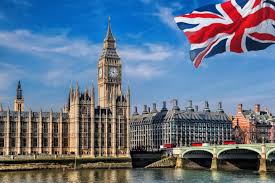
Breaking News
 Tulsi Gabbard Exposes Alarming Biden-Era 'Domestic Terrorism' Strategy
Tulsi Gabbard Exposes Alarming Biden-Era 'Domestic Terrorism' Strategy
 "Levitating Diamonds Reach Impossible Speed":
"Levitating Diamonds Reach Impossible Speed":
Talons From The Sky: Coiled Scales On The Ground
If You Could Destroy America: How Would You Do It?
Top Tech News
 Scientists reach pivotal breakthrough in quest for limitless energy:
Scientists reach pivotal breakthrough in quest for limitless energy:
 Kawasaki CORLEO Walks Like a Robot, Rides Like a Bike!
Kawasaki CORLEO Walks Like a Robot, Rides Like a Bike!
 World's Smallest Pacemaker is Made for Newborns, Activated by Light, and Requires No Surgery
World's Smallest Pacemaker is Made for Newborns, Activated by Light, and Requires No Surgery
 Barrel-rotor flying car prototype begins flight testing
Barrel-rotor flying car prototype begins flight testing
 Coin-sized nuclear 3V battery with 50-year lifespan enters mass production
Coin-sized nuclear 3V battery with 50-year lifespan enters mass production
 BREAKTHROUGH Testing Soon for Starship's Point-to-Point Flights: The Future of Transportation
BREAKTHROUGH Testing Soon for Starship's Point-to-Point Flights: The Future of Transportation
 Molten salt test loop to advance next-gen nuclear reactors
Molten salt test loop to advance next-gen nuclear reactors
 Quantum Teleportation Achieved Over Internet For The First Time
Quantum Teleportation Achieved Over Internet For The First Time
 Watch the Jetson Personal Air Vehicle take flight, then order your own
Watch the Jetson Personal Air Vehicle take flight, then order your own
 Microneedles extract harmful cells, deliver drugs into chronic wounds
Microneedles extract harmful cells, deliver drugs into chronic wounds
Why Is the UK Government So Awful?

I've often thought that the UK hasn't had any good leaders since Lord Salisbury, the last prime minister of Queen Victoria's reign, who died in 1902.
Lord Salisbury (Robert Arthur Talbot Gascoyne-Cecil) was a prudent and sensible man who understood that most ambitious schemes undertaken by people in government are likely to be ruinous. Recognizing the folly of getting into alliances with Europe's Continental powers, he maintained the policy of "splendid isolation." His pessimistic view of government scheming was encapsulated in the credo:
Whatever happens will be for the worse, and therefore it is in our interest that as little should happen as possible.
I am certain that Lord Salisbury would have been appalled by pretty much every major decision made by the British government since his death, especially its gross mismanagement of affairs on the European continent in the first decade of the 20th century. The British government's unnecessary alliances with France and Russia and its needlessly unfriendly posture towards Germany were, it seems to me, foolish at best, and more likely bloody-minded, especially when one considers that the British Royal family was from Germany. Kaiser Wilhelm II was Victoria's grandson.
The British government's treatment of its young men during World War I—herding millions of them into cold, muddy, water-filled, rat infested trenches, where they were subjected to round-the-clock artillery barrages—strikes me as one of the most outrageous abuses of human beings ever perpetrated.
While Churchill is often idolized as Britain's great 20th century leader because of his rousing speeches during World War II, it's not clear to me that any of his decisions arose out of any sort of special prescience or judgement. After Neville Chamberlain declared war on Nazi Germany on Sept. 3, 1939, Churchill became First Lord of the Admiralty—a position he was holding when the Royal Navy attempted to defend Norway from the German navy. This operation ended in disaster on June 8, 1940, when the German battle-cruisers Scharnhost and Gneisenau caught the British aircraft carrier HMS Glorious and her two escorting destroyers Acasta and Ardent in the Norwegian Sea, sinking all three ships, with the loss of 1,519 British sailors. Even though Churchill was head of the Navy, it was Prime Minister Chamberlain who took the flak for the incident and resigned, leaving his office open to Churchill.



